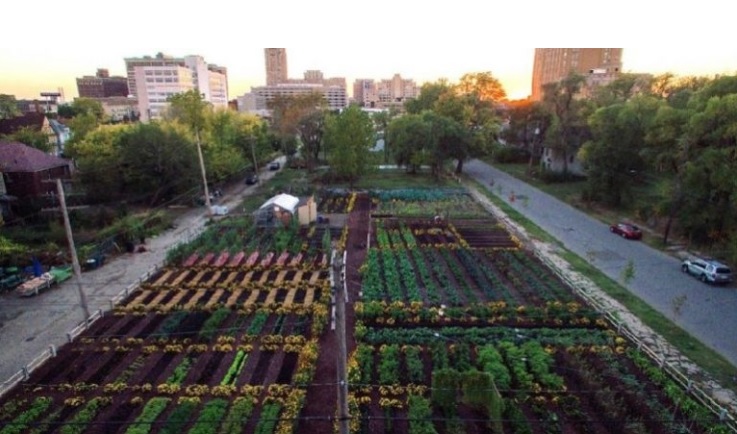Detroit, Michigan is now home to “the first sustainable urban agrihood” in the U.S., focusing on an edible garden that offers easily accessible, affordable produce to neighborhood residents and the community.
Every year, this urban farm provides fresh, free produce to 2,000 households within a two-mile radius while also supplying local markets, restaurants, and food pantries.
While agrihoods are not a new concept, with around 200 already existing or under construction across the U.S., this urban agrihood stands out for its sustainable operations and enhanced accessibility compared to others.
Agrihoods, also known as agritopias or community-supported developments, revolutionize the conventional food system by addressing food insecurity and other community issues. They make fresh, healthy food easily available to low-income communities and foster a meaningful connection between people and their food, the earth, and each other.
All About The First Sustainable Neighborhood, or Agrihood
The first sustainable urban agrihood in Detroit is a project led by the Michigan Urban Farming Initiative, an all-volunteer nonprofit dedicated to empowering urban communities through sustainable agriculture.
This three-acre development includes a two-acre urban garden featuring over 300 organic vegetable varieties, a 200-tree fruit orchard, a children’s sensory garden, and more, all surrounded by vacant, occupied, and abandoned homes in the community.
The nonprofit’s initiatives extend beyond farming, involving the transformation of a vacant building into a community resource center, the development of a healthy food cafe, and the restoration of a home into student intern housing. Other sustainability projects include installing solar panels, implementing a water harvesting cistern for irrigation, a public composting toilet, and a water supply pond created from a blighted home’s foundation.
Could Sustainable Agrihoods Work In Other Urban Areas?
In the U.S., the distance that food travels has increased by 25% over the past two decades, leading to decreased freshness and environmental impacts. Urban areas are particularly vulnerable to becoming food deserts, but the rise of locally grown food demand presents an opportunity for sustainable solutions.
The Michigan Urban Farming Initiative’s agrihood in Detroit is reshaping urban development and redefining urban living. It serves as a model for other communities to enhance access to healthy, local food, address issues like hunger and food accessibility, foster community bonds, improve city sustainability, and reform the food system.






